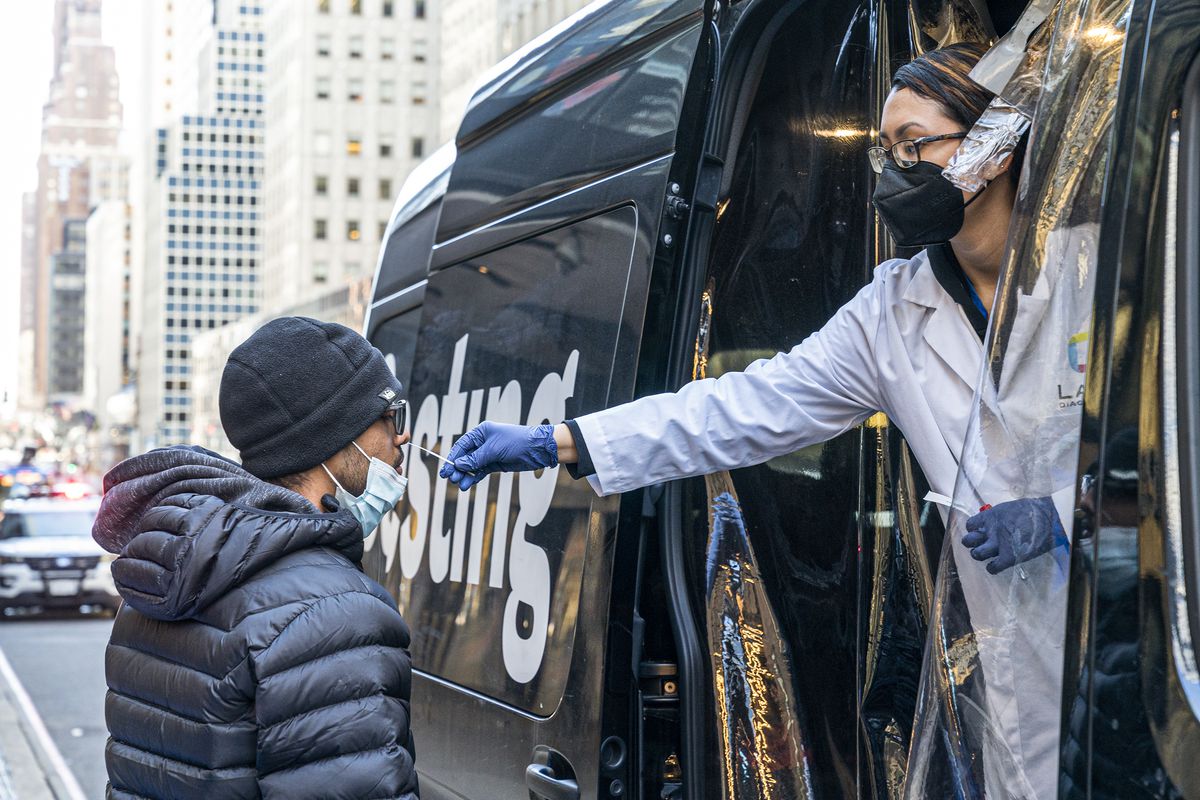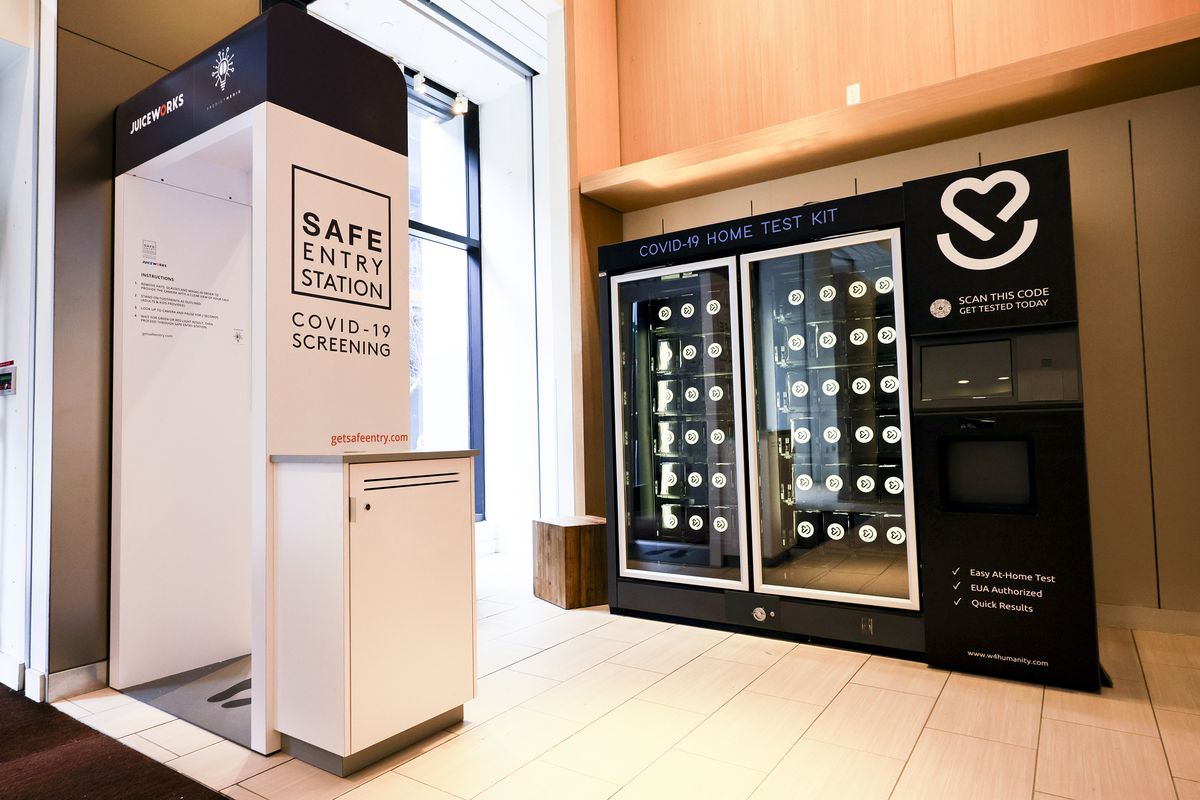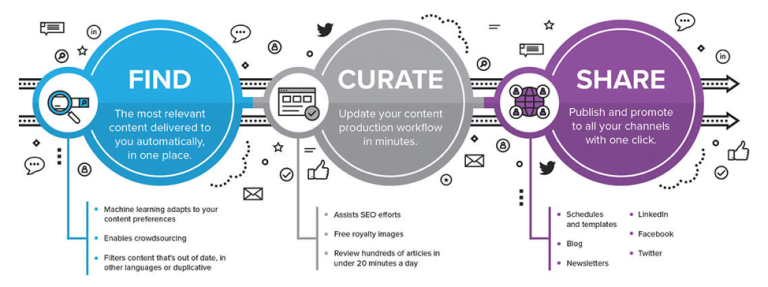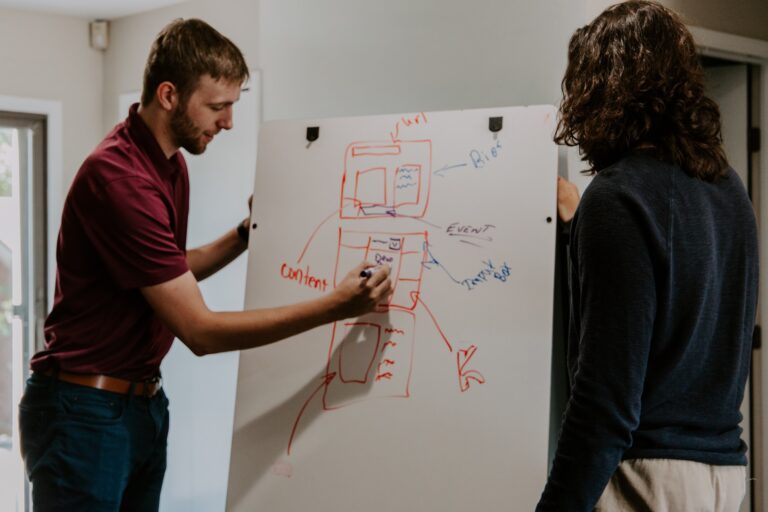
There was a time when we thought Covid-19 testing would save us from the pandemic. As long as we had enough tests and got them in the hands of enough people, we’d be able to identify and contain outbreaks, and life would soon go back to normal.
Clearly, this did not happen.
But now that we have vaccines, death and infection rates are declining, some states are dropping their restrictions, more kids are going back to school, grandparents are giving hugs, and it looks like we’re in for a much safer and better summer than 2020.
So it would be understandable if you thought there wasn’t a place for testing anymore. And you would be wrong.
Testing might be more important now than ever, and new testing technology and government funding and initiatives are making getting tested faster, easier, and cheaper than it’s ever been. Soon — maybe within a few weeks — you might even be able to pick up a test at your local pharmacy and do it yourself. At the same time, many people still don’t know how testing works, what’s out there, or why — and how — they should use testing. Or that it’s important to keep using tests, even after getting vaccinated.
What kind of tests can I get now?
Table of Contents
- 1 What kind of tests can I get now?
- 2 We have vaccines now, so do we still even need testing?
- 3 Testing didn’t stop surges before, so why will things be any better now?
- 4 But I got vaccinated, so I’m free! I never have to get tested again, right?
- 5 I don’t want to wait days to get test results, but I heard antigen tests aren’t accurate. Which test should I get?
- 6 Why can’t I just grab a Covid-19 test from the drugstore, do it at home, and get results quickly? Where is my pregnancy test, but for Covid-19?
There are basically two flavors of Covid-19-detecting tests: molecular, also known as genetic-based tests, which look for the virus’s RNA; and antigen tests, which look for proteins on the surface of the virus.
The standard genetic RT-PCR tests require several hours to run (usually returning results within a few days) and are considered the most accurate of Covid-19 tests. To get one of these, you can go to a point-of-care site to have a sample collected from your nose (or mouth) and sent to a lab, or you can have a test kit delivered to your home, where you collect your own sample and send it back to a lab yourself. And then you wait for the results. In the earliest days of the pandemic, RT-PCR tests were all that were available, so they might be the ones you’re the most familiar with. There are also rapid genetic tests, which are faster than the PCR test but not as accurate.
started to authorize rapid tests that can be run at home, which many experts see as a major advancement for easy, fast, and accessible Covid-19 testing that could make great strides in heading off outbreaks. Several of those tests will be available over the counter — meaning you don’t need to get a prescription from your doctor, thereby removing another barrier to access. More on those tests later.

We have vaccines now, so do we still even need testing?
Yes.
From a public health perspective, testing can identify possible outbreaks and virus hot spots, and can detect and track emerging new variants, all of which could help us finally stay ahead of the virus rather than simply reacting to it, as we have for the past year.
“This virus is still circulating; we still need to diagnose infection, or to identify the people who need to stay home and not transmit their effects to others,” Jennifer Nuzzo, a doctor of public health and senior scholar at the Johns Hopkins Center for Health Security, told Recode. “We need to diagnose infections so that we can understand if there are changes in the epidemiology. Are we seeing the case burden shifting to younger ages or different populations than we’ve seen before? That could give us information about if we need new control strategies. Are we seeing increased transmissibility or increased severity? The answer to all of those questions starts with the diagnosis of an infection.”
And there’s a significant percentage of the American population that will refuse to be vaccinated, as well as people who can’t get the shot due to age, lack of access, and health issues. And it will be years before vaccines are widely available to the rest of the world — if ever. Even after getting vaccinated, people should still get a Covid-19 test if they develop symptoms.
Testing didn’t stop surges before, so why will things be any better now?
The Trump administration’s missteps in handling the pandemic are pretty well-known at this point. America was months behind the virus by the time we were able to get the resources and capacity to do the necessary millions of tests a week. We’ve been playing catch-up ever since, and often with tests that have a multiple-day wait for results — not ideal for a virus that can be infectious for days before the onset of symptoms, or spread by people who never show any symptoms at all. That makes the ability to do fast, routine screenings strategically targeted to higher-risk areas and people an important part of containing the disease.
“A year ago, we were basically reliant on slow, costly, lab-based tests for everything,” said Dr. Jonathan Quick, managing director for pandemic response, preparedness, and prevention health initiative at the Rockefeller Foundation. “That was fine for diagnostic testing, but we were doing less than a million tests a week.” It’s not an ideal setup for catching a lot of infectious people quickly.
Now? “It’s been a dramatic shift,” Quick explained. “And that shift has been to the point-of-care, mostly antigen tests. And we’re seeing the at-home tests coming on.” That’s cause for hope that there will be more robust, large-scale screening programs across the country that will catch the virus before it spreads much further.
“We have, at each step, let the pandemic get ahead of us,” Quick said. “So at this point, it’s really critical that we stay ahead of it. That’s the key role that these tests play.”
The FDA recently made it easier and faster for rapid tests designed to screen individuals multiple times over several days to receive emergency use authorization. Many experts feel these sorts of frequent, rapid tests are necessary to, for instance, safely reopen schools (or at least provide enough reassurance to parents and teachers), workplaces, and large events. The Biden administration also recently issued guidance that insurers should cover the cost of tests even for screening purposes, so people don’t have to have symptoms or have been in contact with someone who has the coronavirus in order to have their test costs covered.
That said, experts warn that testing by itself still isn’t a magic bullet.
“Sometimes people wave technologies like they’re this shiny object that’s going to solve all of our problems,” Nuzzo said. “And it’s never usually the case that a single technology solves all of our problems. It may solve a few, but it could also create some if we’re not smart about it.”
But I got vaccinated, so I’m free! I never have to get tested again, right?
Wrong. We already know that no vaccine has 100 percent guaranteed immunity, especially with new variants that vaccines might not have as much protection against. So if you feel sick — even if you’ve been vaccinated — get tested.
And we’re still finding out if vaccinated people can transmit the virus to others, even if they don’t get sick themselves. That’s why the CDC still recommends that vaccinated people exercise caution in public spaces (masks, social distancing) and when interacting with many people who are not vaccinated.
already preparing for this). Continuous testing and monitoring of emerging variants will help us determine what those boosters should protect against.
“Vaccine manufacturers need to know what variants are there, because I believe that it’s going to be critical,” said Mara Aspinall, professor and co-founder of the Biomedical Diagnostics program at Arizona State University. “We are likely to need an annual booster vaccine, similar to flu.”
So, while being vaccinated certainly has its advantages and should provide for a welcome sense of relief and relative safety, your days of Covid-19 tests are not over.
I don’t want to wait days to get test results, but I heard antigen tests aren’t accurate. Which test should I get?
How much time do you have? If you’ve got a few days to quarantine as you wait for results and want the so-called “gold standard” for accurate results, then go with the RT-PCR. If quarantining for days is not feasible (for example, it means you can’t work at a job that doesn’t offer paid sick leave), well, that’s time you may not have.
Proponents of rapid antigen tests believe that while the tests aren’t as sensitive to lower levels of the virus as RT-PCR tests and will miss more people who have some virus in their system, they are pretty good at detecting people when they have the highest levels of virus and are the most infectious (which typically starts even before symptoms). And these tests can let people know essentially immediately so they reduce the number of others they might infect.
There are some important nuances and big unknowns, however. For example, we don’t yet know what specific level of virus makes a person contagious or not.
“We need to think about antigen tests differently,” Aspinall said. “They were designed to be fast and frequent.”
Getting two rapid tests a day apart should increase your confidence that the result is accurate, and experts recommend continuing to wear a mask and social distance even if you test negative. If you have symptoms but test negative, the CDC recommends confirming the results with an RT-PCR test.
Why can’t I just grab a Covid-19 test from the drugstore, do it at home, and get results quickly? Where is my pregnancy test, but for Covid-19?
Good news! You may soon be able to do just that. The FDA has now authorized several over-the-counter at-home rapid tests. No prescription needed, no doctor visit necessary. And there are likely more authorizations of other such tests coming.
Bad news: You won’t find them on shelves just yet, and it could be a while before they’re widely available.
“The real game changer is fully at-home self-tests, or do-it-yourself tests,” Aspinall said. “That’s when the power shifts to the individual. … Now we need to have enough capacity at the right price, which does not exist yet.”
The first over-the-counter rapid test to be authorized by the FDA comes from an Australian company called Ellume. Its CEO and founder, Dr. Sean Parsons, told Recode that the company hopes to produce up to 15 million tests a month once its American factory is up and running in the second half of 2021. But Ellume’s test costs about $30, partly because it requires the use of a mobile app to guide users through administering and running the test to reduce errors and maximize accuracy, as well as report results back to public health authorities. Parsons said a cheaper version of the test without an app could be produced, but the increased risk of user error and inaccurate results was too great to do it.

Parsons hopes that once Ellume scales up test production — a $231.8 million payment from the Biden administration for 8.5 million tests will allow the company to build its American plant and automate some of its production — it’ll be able to cut the price a bit. Parsons says we should start seeing some tests available for retail purchase next month (he wouldn’t say how many or where), but the test won’t be widely available until the second half of the year.
Another FDA-authorized over-the-counter test, from Cue Health, also uses a mobile app. Cue’s test was initially authorized as a point-of-care test, and the Trump administration gave a $481 million contract to the company to produce 6 million tests, which the company says will be used in schools, doctor’s offices, and nursing homes. The company hasn’t shared details yet about pricing and availability for retail sales.
On March 31, the FDA authorized over-the-counter at-home tests from Quidel and Abbott that may be even easier and cheaper than Ellume’s or Cue’s. Testing proponents have for months been calling for simple paper strip tests for Covid-19, and they are, unsurprisingly, thrilled.
BIG NEWS!!
Rapid Antigen “Paper Strip” Tests get over-the-counter use from @US_FDA!
• NO prescription or doctor needed
• NO CLIA waiverSimple, streamlined rapid tests will be available in US
First companies: @AbbottNews BinaxNOW@QuidelDX Quickvuehttps://t.co/X4FB68amla
— Michael Mina (@michaelmina_lab) April 1, 2021
Abbott told Recode that its tests should be available “in the coming weeks.” The company expects to sell them to retailers at less than $10 per test, with the retailers then choosing how much to charge consumers. Quidel says its tests will be available “soon” but the pricing has “yet to be determined.”
While testing is still important, we’ve also seen how ineffective it can be if programs aren’t deployed and managed properly. It’s not just about which tests we have or how many there are — it’s about incorporating them all where and when they’re most needed.
“I’m so adamant that what we need is a strategy above all,” Nuzzo, from Johns Hopkins, said. “You figure out which technology will give you information to be able to take that action. Sometimes it’s going to be a lab test; sometimes it’s going to be a rapid test. But we need to figure it out. We’ve never really done that.”
Open Sourced is made possible by Omidyar Network. All Open Sourced content is editorially independent and produced by our journalists.





